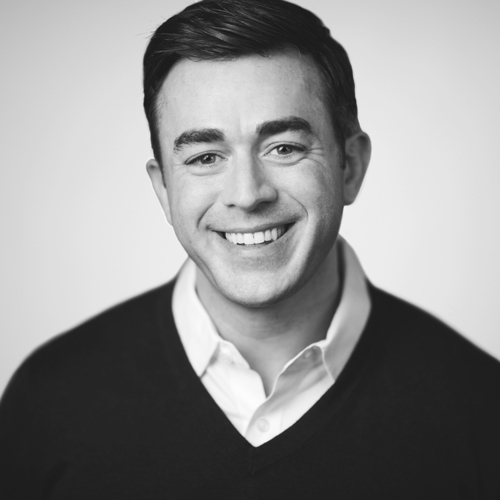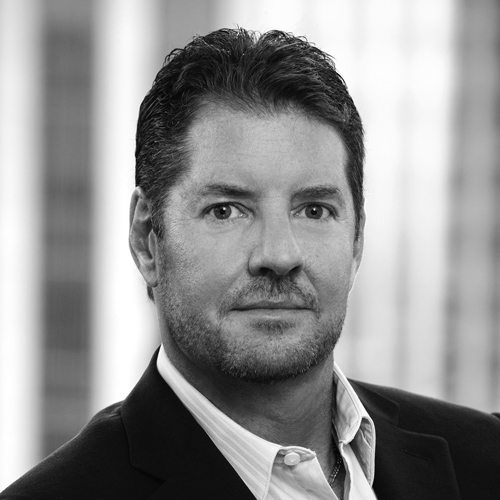It may be a little surprising to think about how many products can end up coming from one company. Lactaid, Blue Diamond Almond Breeze, Hershey’s Milk and Milkshakes, Southern Comfort Egg Nog, and Bailey’s non-alcoholic coffee creamers are all dairy-related products that you’ve seen or heard about even if you don’t use them yourself. HP Hood is the source of production and distribution for all the aforementioned products.
“In most of these instances, we have done deals with the companies to acquire the trademarks and/or core ingredients or technology,” says Paul Nightingale, senior vice president and general counsel, who’s in charge of negotiating the licensing for all of the brands. “We also handle the manufacturing and distribution of the product line. For instance, McNeil Nutritionals, a subsidiary of Johnson & Johnson, developed the technology to remove lactose from milk, which is essential to Lactaid. But they’re not in the milk business. It’s a much better fit for us.”
The same incident occurred with almond milk. Researchers at Blue Diamond Growers, the world’s largest almond processing and marketing company, developed almond milk in response to the growing demand for non-dairy alternatives. But milk production and distribution are not in its wheelhouse. HP Hood licensed the product, which ended up being a wise move. About fifty million Americans are lactose intolerant, and according to the Nielsen Company, almond milk sales have surged 250 percent in the past five years.
That’s one way for HP Hood to expand its reach. The company, family-owned and based in Massachusetts since its founding in 1846, has also expanded by acquiring other companies. Nightingale stepped into the general counsel role in 2004 just in time to handle the acquisitions of New York-based Crowley Foods (which had been purchased for about $400 million by National Dairy Holdings just three years earlier) and Minnesota-based Kemps.
Those two acquisitions helped create one of the ten largest dairy companies in North America, with more than $2 billion in annual sales and fifteen manufacturing plants. However, this wasn’t without its challenges.
“Not only did Crowley and Kemps have different cultures from each other, but they both differed from our culture,” Nightingale explains. “We integrated Crowley fairly quickly, but most of their executives left within a short time. Kemps’ Midwestern location and conventional processing did not fit well with our focus on licensed brands and extended shelf-life processing. We kept Kemps separate and left their management team largely intact. We ended up spinning them off in 2011.”
One of the lessons that Nightingale says he learned from this experience was to alert management as soon as possible if he senses a cultural disconnect can occur.
“As lawyers, we’re often the first to see areas of potential discord,” he explains. “If we speak up, we can help steer our companies away from activities that may end up draining time and resources from more important tasks.”
Nightingale enjoys negotiating deals, licensing brands, and helping unify corporate cultures, but he also derives immense satisfaction from assisting nonprofit groups—something he’s been able to take a more active role in since coming to HP Hood.
The organization currently requiring the most amount of time is the Plummer Home for Boys in Salem, Massachusetts, where he serves as president.
“Plummer was founded more than 150 years ago as a group home for boys,” Nightingale says. “In recent years, we’ve added foster care and an after-school program for at-risk boys and girls.”
The work has made him painfully aware of how severe the need is in his own backyard. “There are so many troubled, neglected, and abused children,” he says. “We don’t have nearly enough resources to help them. It’s a real tragedy.”
Even though Massachusetts extended the age at which children are forced out of the foster care program from eighteen to twenty-two in 2011, Nightingale says Plummer still considers “permanency”—having shelter and an alternative family—to be crucial to a child’s success later in life.
“Their chances of succeeding in life are greatly enhanced if they have a safe place to live and at least one secure, continuous relationship with an adult who is committed to their success,” Nightingale says. “Without this type of relationship, children are at much higher risk for all sorts of problems.”
Plummer also rents apartments for older children if family-type living arrangements cannot be found, Nightingale says.
“We support them financially, to help them get on their feet, and arrange for social workers to visit them regularly. Even with the older age limit, too many children still age out of the system not knowing what to do or where to go, and with no adult presence in their lives. We try to make sure that doesn’t happen,” he says.
Nightingale’s desire to help children was ignited during his first year as a lawyer at Goodwin Procter in Boston, where he was an associate.
“I was appointed as the guardian ad litem for a seventeen-year-old boy who had been taken away from his family,” he says. “He was being pushed and pulled between extended family members. It really opened my eyes to the problem and showed me how difficult it is to make the right decisions for these kids. The child welfare system, though better than nothing, does not necessarily have all the answers. It also showed me how great the need is for more support and resources.”
Even if Nightingale hadn’t received this earlier wake-up call, working at HP Hood would have connected him to the world of giving back. “That is one of the great things about this company,” he says. “It is incredibly community-focused.”
Organizations supported by the company include the United Way, the Red Sox Foundation, Feeding America, the Hood Sportsmanship Scholarship Program, and the Charles H. Hood Foundation (which provides scholarships to children of people working in the dairy industry). Nightingale is on the board of the latter group.
“It is extremely important to me to work for a company that gets involved in the community and finds ways to help educate, elevate, and integrate those who are less fortunate,” he says.

